Are you considering venturing into the exciting world of franchise partnerships? Crafting a robust franchise partnership agreement is essential for establishing clear expectations and responsibilities between you and your franchisee. In this article, we'll guide you through the key components of an effective agreement, ensuring a successful collaboration that benefits both parties. So, whether you're a seasoned franchisor or just starting out, read on to discover how to set the foundation for a thriving partnership!

Franchisee and Franchisor Information
Franchise partnerships are essential for business expansion, involving specific entities. The franchisor, typically a well-established company, grants the franchisee, an independent operator, the right to utilize the business model, trademarks, and operational standards. This agreement is crucial and outlines the rights and responsibilities of each party. Essential details include the franchisor's name, registered address, and contact details, while the franchisee's information includes their business name, location, and legal structure. Additional clauses may address fees, royalties, and territorial rights, ensuring mutual understanding and compliance. The partnership's success often hinges on clearly defined roles and operational guidelines, facilitating effective collaboration and growth.
Scope and Territory
A franchise partnership agreement outlines the specific scope and territory within which the franchisee operates. The scope defines the range of products or services, such as fast food offerings or retail items, that the franchisee is authorized to offer. The territory typically refers to a defined geographical area, often including cities or states, where the franchisee can conduct business, such as the state of California or the city of New York. It is crucial to take into account market saturation and demographic factors, ensuring the territory aligns with the brand's strategic objectives. Defining exclusive rights is important, preventing other franchisees from entering the same market area. Additionally, performance benchmarks may be set, guiding franchisees in their operations and growth within the designated territory.
Financial Terms and Fees
Franchise partnership agreements often include detailed sections on financial terms and fees, which outline the monetary obligations of both parties involved in the franchise relationship. Initial franchise fees, typically ranging from $10,000 to $50,000, are often required to secure the rights to operate under the brand name. Royalty fees, which can be a percentage of gross sales (usually between 4% and 8%), are paid on an ongoing basis for the brand support and marketing provided by the franchisor. Additionally, marketing contributions may be mandated, often 1% to 3% of sales, to fund national advertising campaigns. Other potential costs include equipment purchases, training fees, and ongoing operational costs, which together ensure that franchisees can successfully operate their businesses while adhering to the franchisor's guidelines and standards. This comprehensive financial framework ensures transparency and clarity in the franchise partnership, ultimately fostering a mutually beneficial relationship.
Duration and Renewal Conditions
In franchise partnership agreements, the duration typically spans five to ten years, depending on the franchise's nature and industry standards. Renewal conditions may stipulate that franchisees must meet specific performance benchmarks, such as achieving a minimum annual revenue or maintaining a certain customer satisfaction rating. The renewal process often requires written notice (usually 6 to 12 months prior to the expiration) and adherence to updated operational protocols or branding guidelines established by the franchisor. Additionally, there may be fees associated with the renewal, including franchise fees, legal costs, or training expenses, reflecting the ongoing investment necessary to sustain the franchise relationship.
Termination and Breach Terms
Termination and breach terms in a franchise partnership agreement outline the conditions under which either party may terminate the agreement. A specified notice period, often ranging from 30 to 90 days, is required for termination notification. Breach examples include failure to meet financial obligations, not adhering to operational standards, or violating trademark usage guidelines. Consequences for breaches can involve monetary penalties or legal action. Additionally, the agreement may include clauses for resolving disputes through arbitration or mediation, ensuring both parties have a clear process for addressing disagreements. Locations for potential breaches, like branches in high-traffic areas, may also be highlighted to emphasize areas of operational commitment. This ensures both parties remain aligned with the franchise's core values and operational integrity.

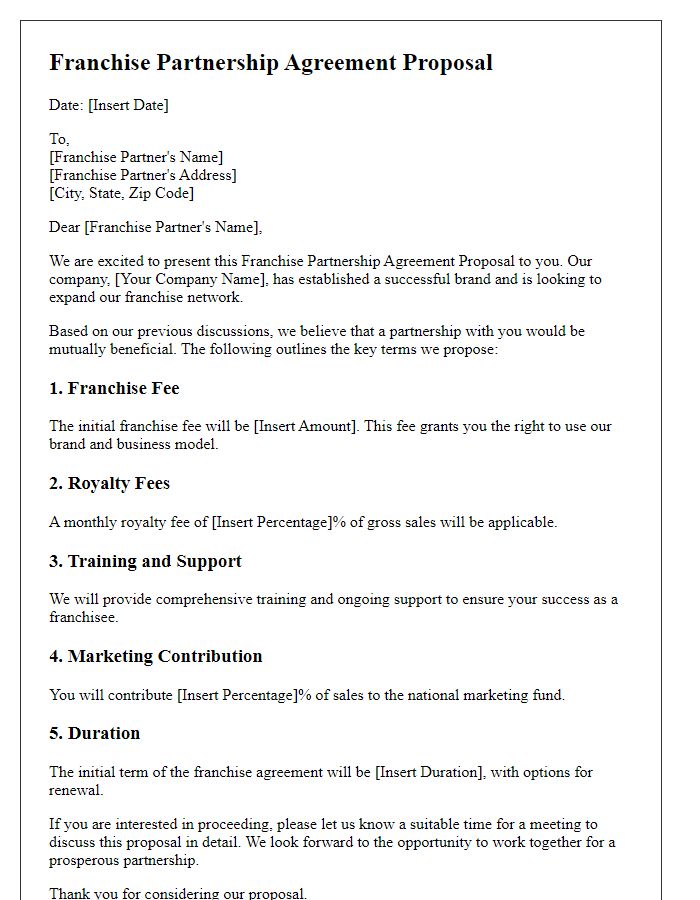
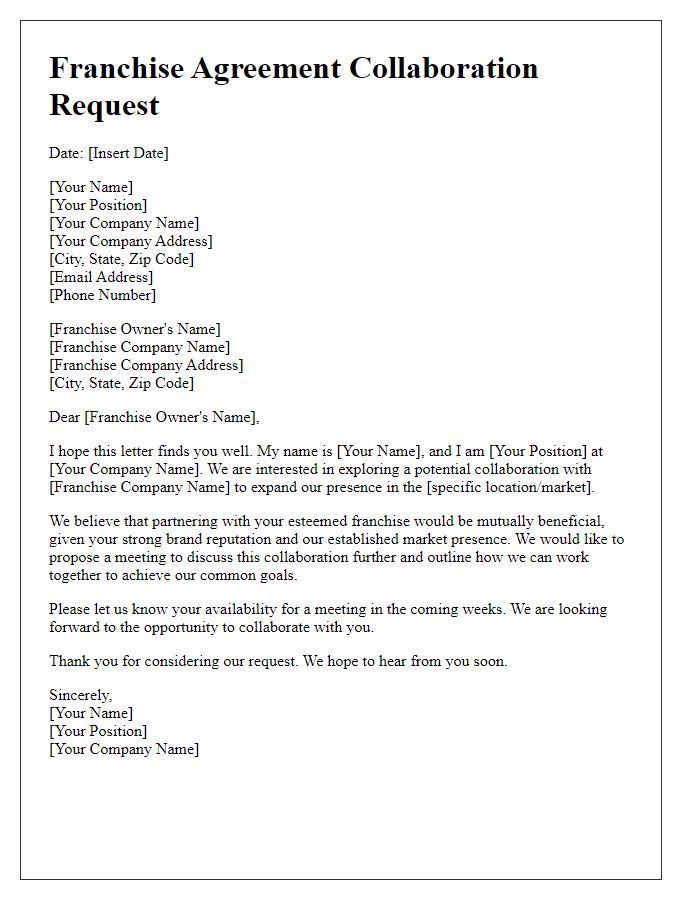
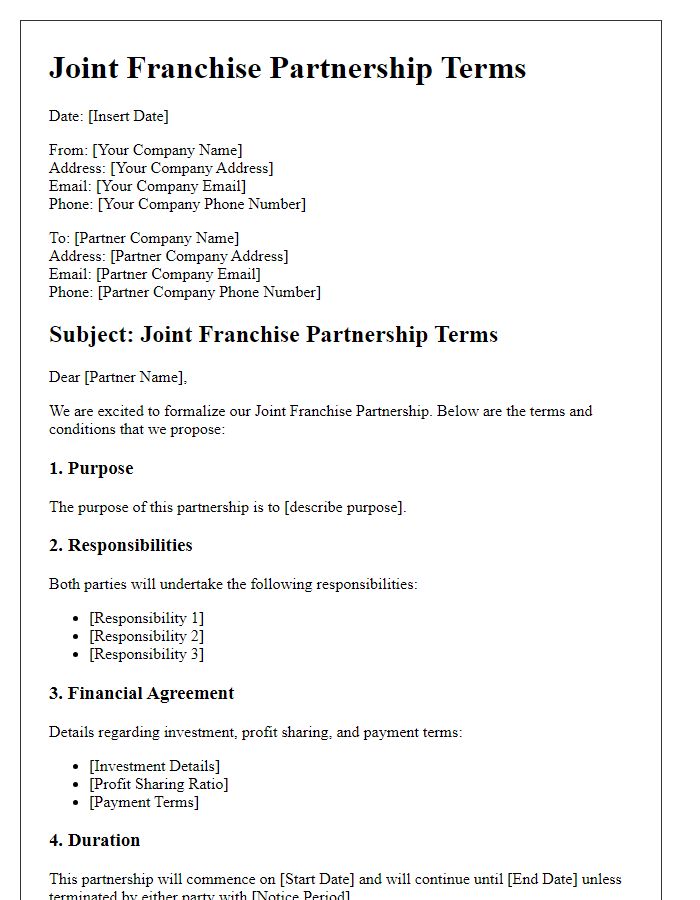
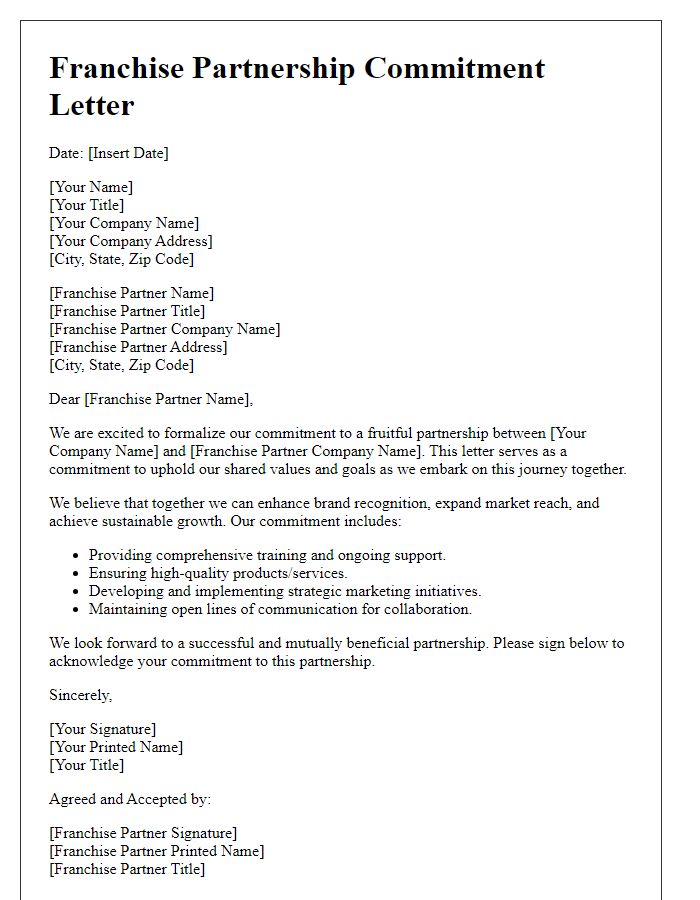
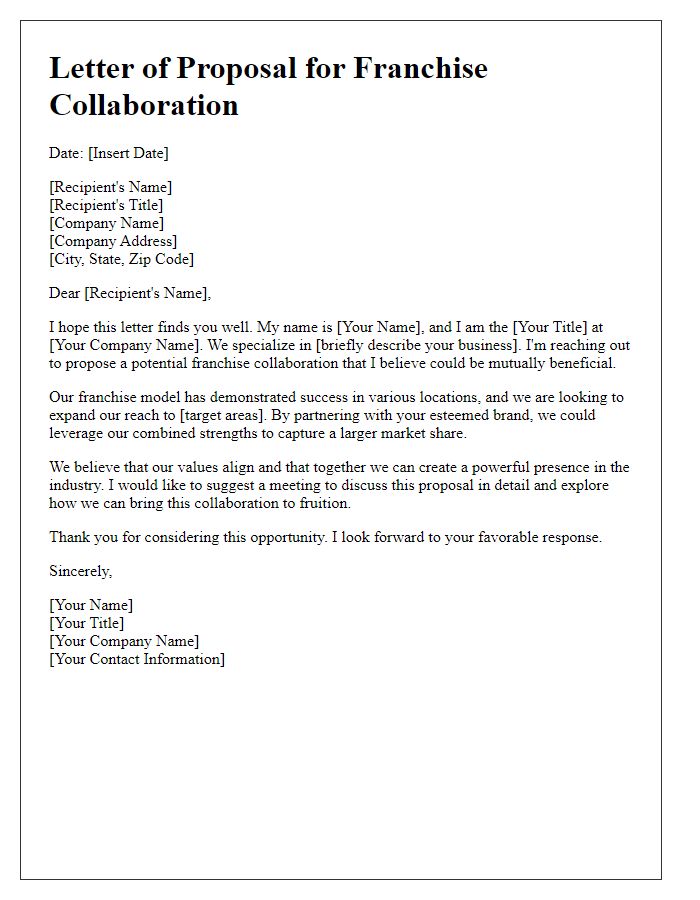
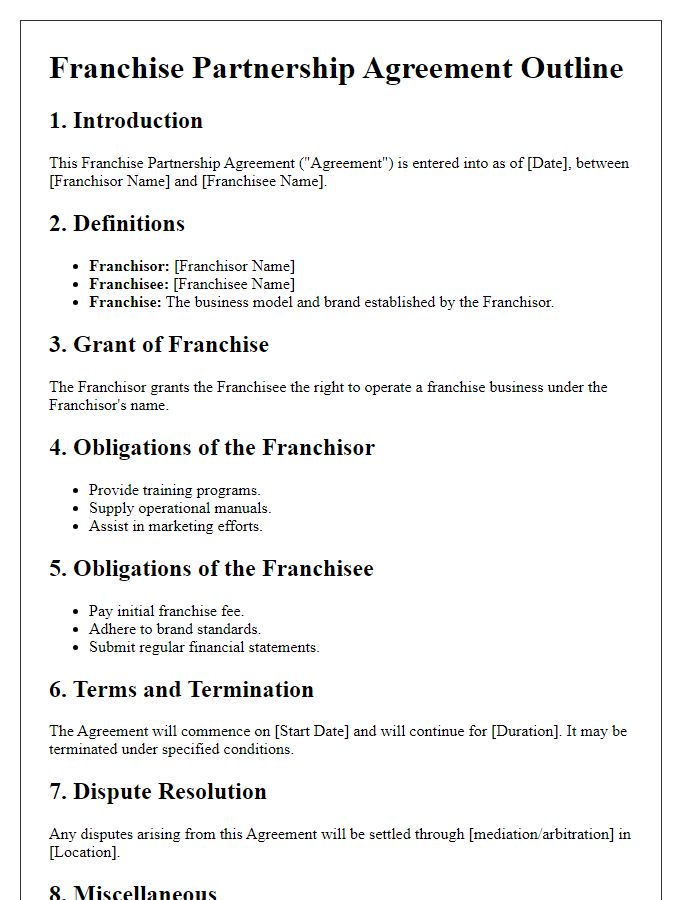
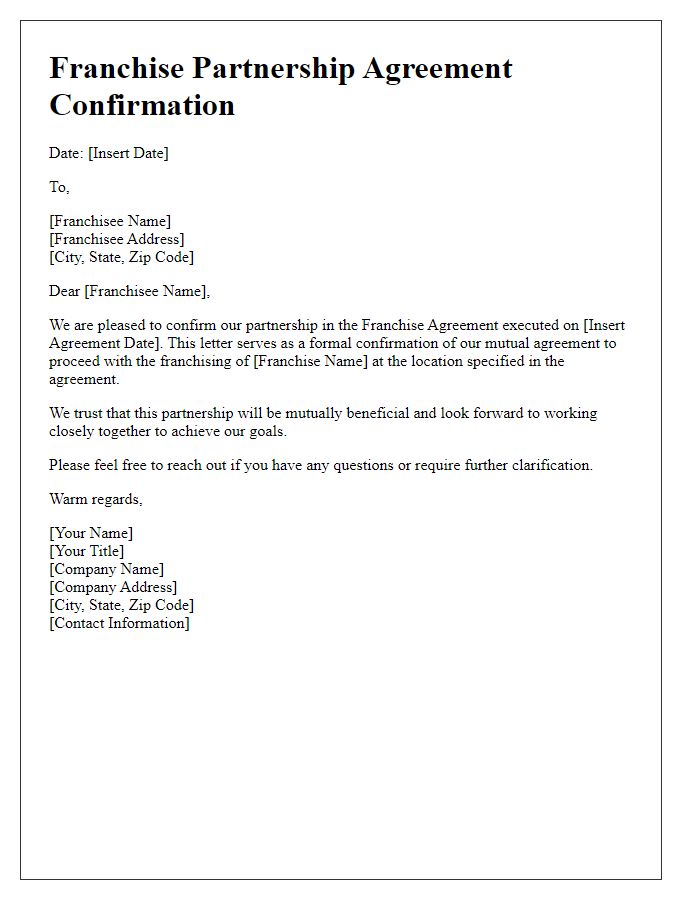
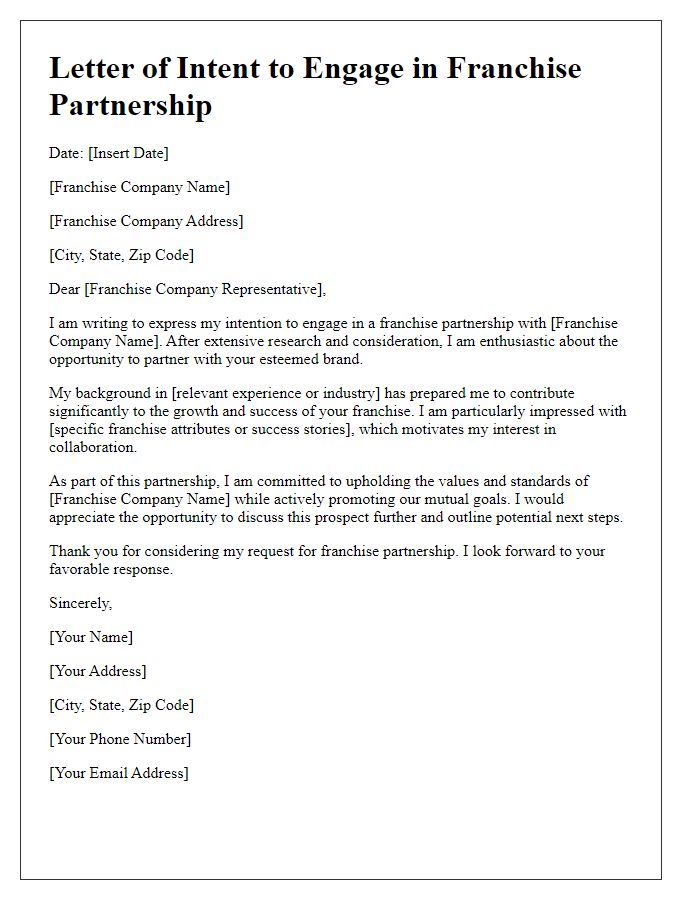
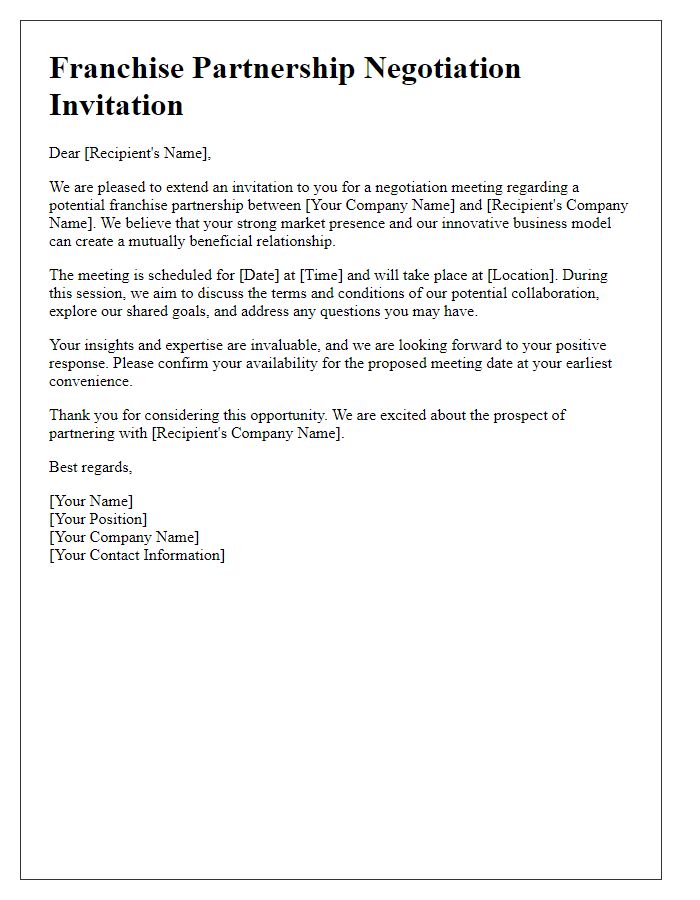
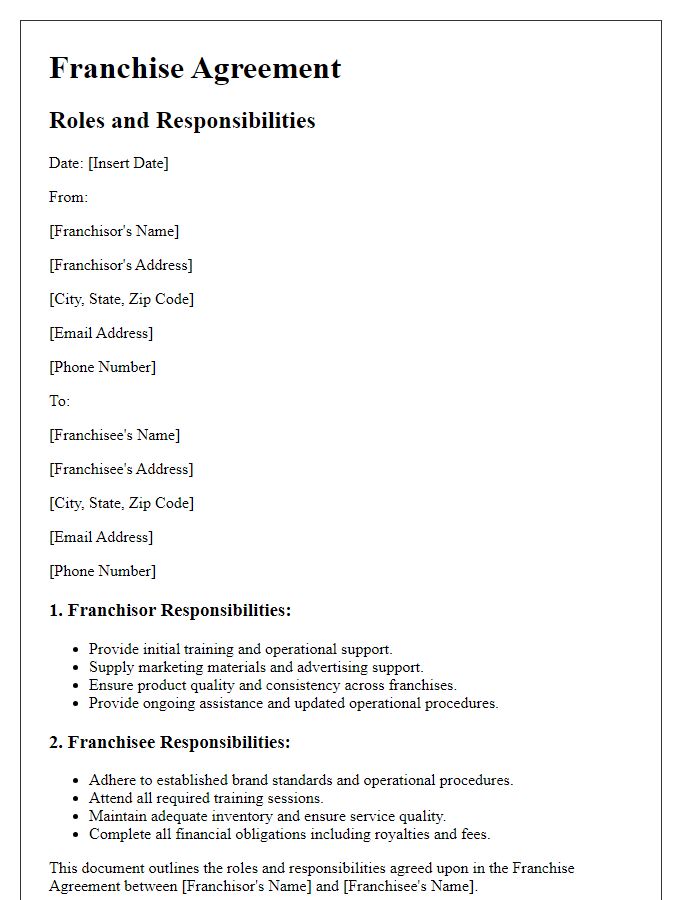

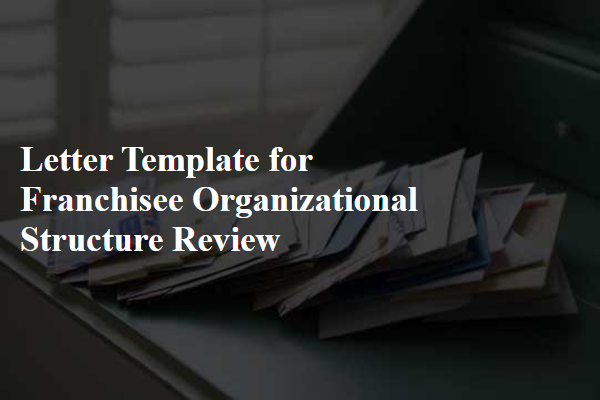
Comments